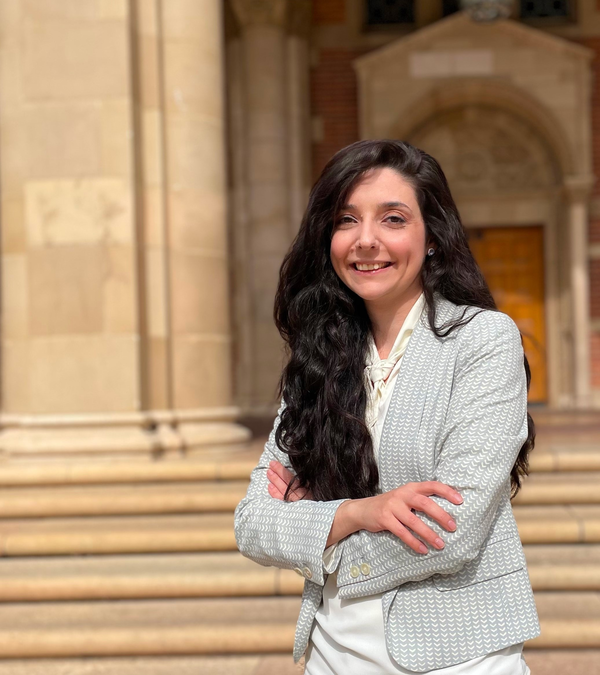
Literary Representations of Nested Memory: a Contrapuntal Approach
- Event Type
- Lecture
- Sponsor
- CSAMES
- Date
- Mar 21, 2023 12:00 - 1:00 pm
- Speaker
- Dr. Helen Makhdoumian, Postdoctoral Scholar at the University of California, Los Angeles.
- Registration
- Registration
- Contact
- Center for South Asian and Middle Eastern Studies
- csames@illinois.edu
- Phone
- 217-265-5016
- Views
- 99
What happens when we recognize that inheritors of traumatic cultural memory can also be witnesses to succeeding events of collective violence? More specifically, how does the field of contemporary cultural memory studies develop tools to make meaning of the narrativization of those acts of witnessing when such acts occur in context of the displacement of an already diasporic community? In this presentation, I proffer the rubric of what I call “nested memory” by analyzing portrayals in Armenian American and Palestinian American literary texts of this phenomenon of living through the recursivity of collective trauma. Through a contrapuntal approach, I illuminate depictions of inherited memories of removal—a particular kind of forced migration—that are nested into collective memories of succeeding experiences of upheaval and displacement. Working in this manner of literary analysis grounded in juxtaposition, I build theoretical nuance for the study of removal memory as it is portrayed as reactivated in instances of intergenerational internal and external displacement and make legible rather than erase the tensions that are raised when we bring together the afterlives of structural violence in different geopolitical sites. In so doing, this project on nested memory contributes to the overlapping but also distinct methodological aims for the study of the migration of memory, memory and migration, and the memory of migration.